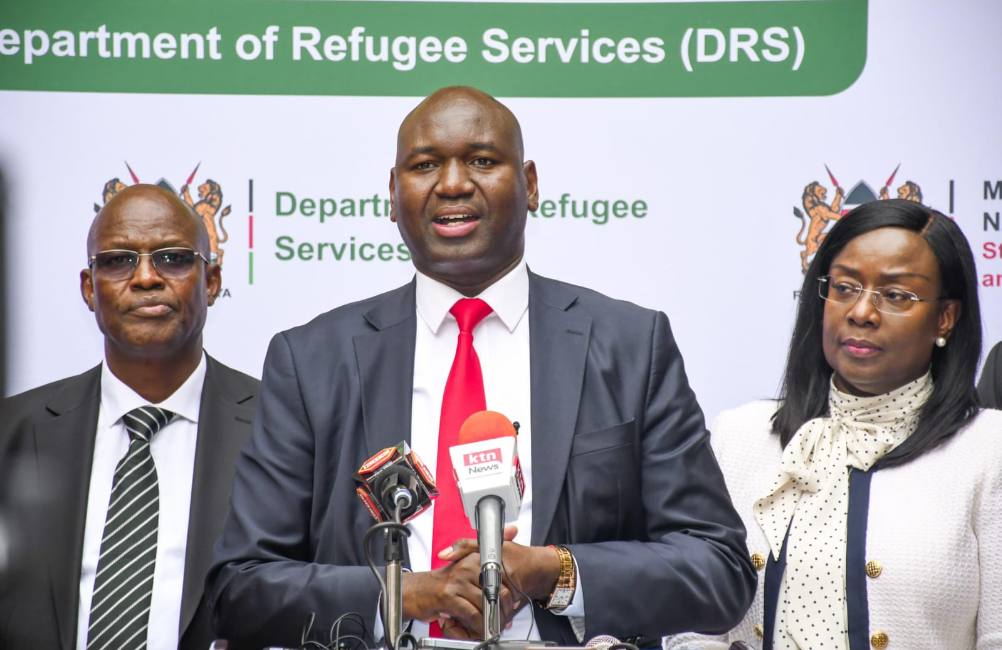The resettlement of over 700,000 refugees in Daadab and Kakuma camps is set to move forward with the formal adoption of the Shirika Plan by key stakeholders.
This initiative will transform the refugee camps in Garissa and Turkana counties into municipalities, promoting integration with local communities. The launch date for the Shirika Plan is set for November this year.
The Shirika Plan, a collaborative effort involving the Kenyan government, county governments, the UN, and the United Nations Commission for Refugees, aims to integrate refugees into municipalities within host communities.
This plan will bring enhanced socioeconomic investments, such as schools, health facilities, roads, and modern markets, benefiting both refugees and local residents.

Immigration PS Julius Bitok highlighted the need for resource mobilization, with phase one of the four-year project estimated to cost $943 million (Ksh115.6 billion).
Funding will come from various partners, donors, governments, and the private sector, channeled through government agencies, international NGOs, and county governments.
The implementation framework for the Shirika Plan is already in place, supported by the Refugee Act 2021 and related regulations.
The county governments of Turkana and Garissa have gazetted Dadaab and Kakuma as municipalities, facilitating necessary planning and infrastructure upgrades.
The refugee camps will be restructured into modern urban centers with essential infrastructure, promoting mobility, economic inclusion, and refugee participation in national development.
The Shirika Plan National Steering Committee, comprising governors and PSs from critical state departments, will oversee the implementation.
The ministry of interior emphasized that integrating refugees with host communities will enhance local and national security.
In addition stakeholders praised the plan for recognizing refugees’ socioeconomic potential, aiming to harness their skills for mutual benefit. Furthermore they stressed the need for balanced resource sharing between host communities and refugees.
UN Resident Coordinator in Kenya Stephen Jackson and UNHCR Representative Caroline van Buren pledged support for the Shirika Plan’s implementation, marking a significant step towards sustainable refugee resettlement and community integration in Kenya.
By: Ann Nyamburu






More Stories
George Wachiuri: Vipingo Prime Offers Investors a Piece of Coastal Paradise
Nairobi Environment Chief Honored by International Police Organization for Stewardship
St. George’s University Celebrates Over 1,035 Residency Matches in 2025, Continuing Reign as Top U.S. Doctor Producer